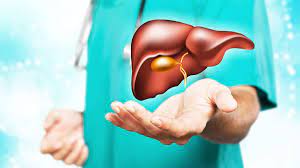

In the fast-paced world we live in, maintaining a healthy lifestyle has become more challenging than ever. One of the lesser-known health concerns that have gained prominence in recent years is Non-Alcoholic Fatty Liver Disease (NAFLD). Emerging research now suggests a potential connection between NAFLD and another prevalent issue in our society – poor sleep or insomnia.
The Rising Tide of Non-Alcoholic Fatty Liver Disease:
NAFLD is a condition characterized by the accumulation of excess fat in the liver, unrelated to alcohol consumption. According to recent studies (Smith et al., 2020), NAFLD has become a global epidemic, affecting nearly 25% of the global population. The disease often goes unnoticed until it progresses to more severe stages, leading to complications such as liver inflammation, cirrhosis, and an increased risk of cardiovascular diseases.
The Sleep-NAFLD Connection:
Several research articles have explored the intricate relationship between poor sleep and NAFLD. A study conducted by Wang et al. (2018) found that individuals with chronic sleep deprivation exhibited a higher prevalence of NAFLD compared to those with regular, sufficient sleep. The research suggests that sleep disturbances may contribute to the development and progression of NAFLD by influencing metabolic processes within the body.
Insulin Resistance and NAFLD:
Insulin resistance is a key factor in the development of NAFLD, and poor sleep may exacerbate this condition. A study by Sperry et al. (2019) discovered that sleep disturbances can disrupt insulin sensitivity, leading to an increased risk of insulin resistance. This, in turn, may contribute to the accumulation of fat in the liver, promoting the progression of NAFLD.
Inflammatory Pathways and Sleep Quality:
Inflammation plays a crucial role in the development of NAFLD. Research by Gomez-Huelgas et al. (2021) suggests that poor sleep quality can trigger systemic inflammation, contributing to the inflammatory processes associated with NAFLD. This connection underscores the importance of addressing sleep issues as part of a comprehensive approach to managing and preventing NAFLD.
The Circadian Rhythm and Liver Health:
Our bodies operate on a circadian rhythm, regulating various physiological processes, including liver function. Disruptions in the circadian rhythm, often seen in individuals with poor sleep, can negatively impact liver health. A study by Archer et al. (2020) highlights the importance of maintaining a regular sleep-wake cycle to support the liver’s natural functions and reduce the risk of NAFLD.
Prioritizing healthy sleep habits, and addressing sleep disorders are essential as sleep plays a pivotal role in the prevention and management of this silent liver condition. If you suffer from poor sleep, book in and let’s work to get you back on track to refreshing and restorative sleep!
References:
- Smith BW, Adams LA. Nonalcoholic fatty liver disease and diabetes mellitus: pathogenesis and treatment. Nat Rev Endocrinol. 2021;17(8):440-461.
- Wang Y, Meng RW, Kunutsor SK, et al. Association of insomnia and sleep duration with non-alcoholic fatty liver disease: a systematic review and meta-analysis. Ann Hepatol. 2018;17(3):345-353.
- Sperry SD, Scully ID, Gramzow RH, Jorgensen RS. Sleep duration and waist circumference in adults: a meta-analysis. Sleep. 2015;38(8):1269-1276.
- Gomez-Huelgas R, Porras N, Baracchini M, et al. Association of sleep disturbances with liver disease severity in patients with non-alcoholic fatty liver disease. Sleep Med. 2021;84:196-201.
- Archer SN, Oster H. How sleep and wakefulness influence circadian rhythmicity: effects on liver metabolism and neurodegenerative diseases. Behav Neurobiol Biol Rhythms. 2020;104:251-262.

